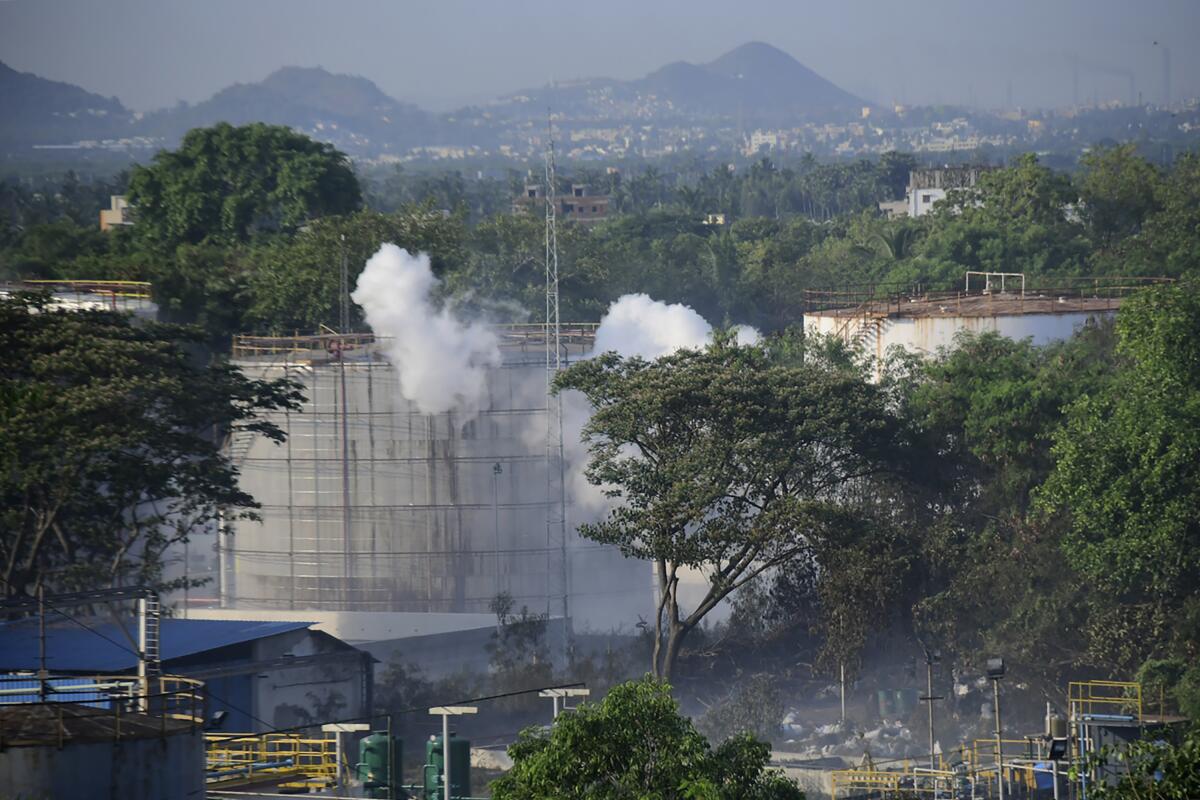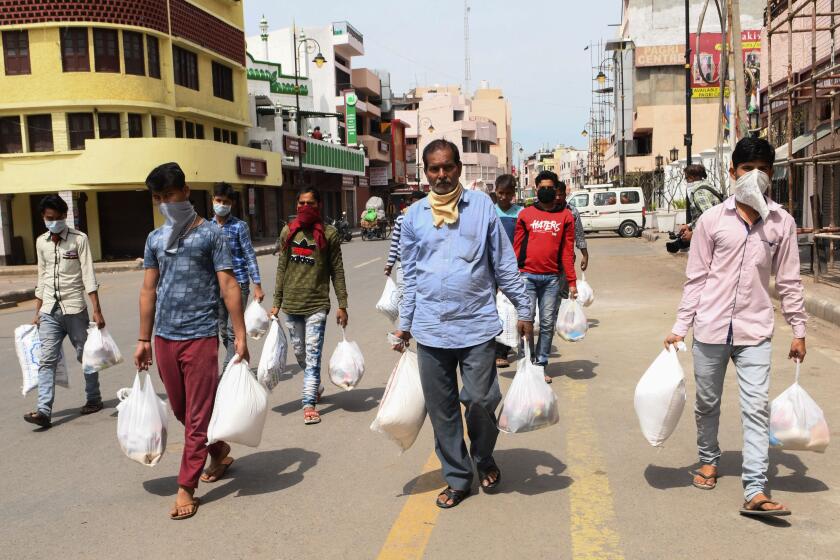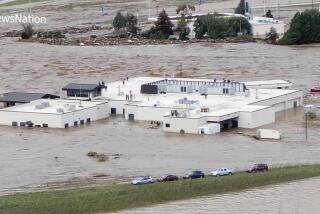Deadly gas leak in India blamed on safety lapses

NEW DELHI â A committee appointed by Indiaâs top environmental court has blamed âgross human failureâ and lack of basic safety norms for a gas leak in a South Korean-owned chemical factory that killed 12 people and sickened hundreds.
The committee said the tanks from which the gas leaked May 7 at the LG Polymers plant in Vishakhapatnam, a port city in Andhra Pradesh state, were outdated and lacked temperature sensors.
Workers at the factory were slow to respond to the leak, and the chemical company lacked experience in monitoring and maintaining tanks full of chemicals that sat idle for weeks because of Indiaâs coronavirus lockdown, said the committeeâs report, which was issued Thursday.
LG Polymers is owned by LG Chem, South Koreaâs largest chemical company, which produces a range of industrial products, including petrochemicals, plastics and batteries used in electric vehicles. It is part of the family-owned LG Corp. conglomerate, which also has an electronics arm that globally sells smartphones, TVs and computers.
The gas that leaked from the plant was styrene, which is used to make plastic and rubber. Styrene gas is a neurotoxin and can immobilize people within minutes of inhalation. It can be fatal at high concentrations.
Days after the mishap, the Associated Press found that the plant lacked environmental clearance before the leak.
A three-week lockdown affecting 1.3 billion people has unleashed chaos as stranded migrant workers sleep in streets and police beat curfew-breakers.
LG Chem had maintained that LG Polymers India operated the plant âwhile abiding [by] environmental regulationsâ and said it was closely monitoring efforts to handle the aftermath.
After the leak, police charged LG Polymers with culpable homicide, including negligence in handling toxic substances.
LG Chem began operating the plant in Vishakhapatnam in 1997. Its Indian operation is one of the leading manufacturers of polystyrene in the country. The Vishakhapatnam plant has around 300 workers.
More to Read
Sign up for Essential California
The most important California stories and recommendations in your inbox every morning.
You may occasionally receive promotional content from the Los Angeles Times.











